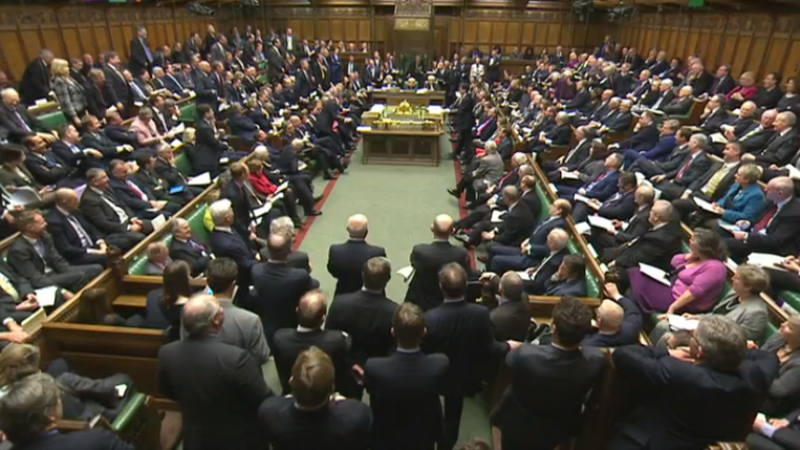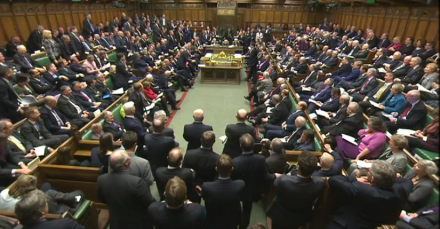

It was obvious on May 8th that today’s PMQs – the first of the new parliament – was not going to be a pleasant one to sit through. Unless you’re David Cameron, that is. With Labour down a permanent leader, the party benches diminished by 26 MPs and the Conservative side of the House boasting the first majority they’ve had in 18 years, Cameron relished every moment.
The make-up of the House might have changed, but the Prime Minister’s approach hasn’t. With an increased amount of arrogance since the last PMQs in March, Cameron was again asking questions instead of answering them.
Harriet Harman – Labour’s interim leader – tried to pin down the PM on one of the issues that should have been at the front and centre of Labour’s campaign over the last five years: housing. More than once she asked Cameron why the percentage of people owning a home had gone down under his stewardship. But he was having none of it.
Instead, he threw the same question back to Harman, asking why her Labour opposes extending the right-to-buy. In doing so, he was quick to claim the word of the moment for the purposes of his attack; Labour is the “enemy of the aspiration,” he cried. An easy, unoriginal shot that we can expect to hear ad infinitum in the PMQs to come. Not least because all of the Labour leadership candidates are fixated on this idea too.
But while Cameron is basking in his party’s victory, Harman’s line of question was on the money. Although it might be easy to forget in the grandeur of Westminster, there is a housing crisis in this country. In recent years there have been huge budget cuts to house building programmes, rents and house prices have outstripped wages and last year, the number of people who owned a home was at its lowest level for 30 years. All the while, the Coalition fell well short of their promises. They promised that for every council home they sold, they’d make sure another 1 would be built but what actually happened was that for every 10 sold, only 1 was built.
And the Conservative’s policies don’t speak to these problems at all. Their policy to extend right-to-buy will force housing associations to sell off properties at a discounted rate. This could cost anywhere from £5.8 billion to £20 billion while also further decreasing the social housing stock. So to answer Cameron’s question, that’s why Labour should oppose it.
Once housing was done with, another question Cameron refused to answer was where the £12bn in cuts from the welfare bill is going to come from. That’s because he still doesn’t know. Iain Duncan Smith tried to to cut child benefit (remember the same child benefit the Conservatives said they’d protect) from parents with more than two children but Downing Street blocked this. This political stalemate can only continue so long and they’re fast running out of options to meet their own ludicrous target.
Unfortunately, the PM’s own question for Harman on the topic of welfare was a pertinent one. What is Labour’s position on the reducing the benefit cap from £26,000 to £23,000? Harman said last week she was sympathetic to it (despite evidence showing it could mean 40,000 are dropped into poverty) but the party’s position isn’t as clear as it should be.
In case anyone was under a different impression, PMQs is still the unpleasant, unenlightening shouting match that it was before the election. But there’s only so long that Cameron can continue to avoid these big questions because looking at the scale of the problems facing the country, it won’t just be the Labour party demanding answers.




More from LabourList
‘Ukraine is Europe’s frontier – and Labour must stay resolute in its defence’
Vast majority of Labour members back defence spending boost and NATO membership – poll
‘Bold action, not piecemeal fixes, is the answer to Britain’s housing shortage’